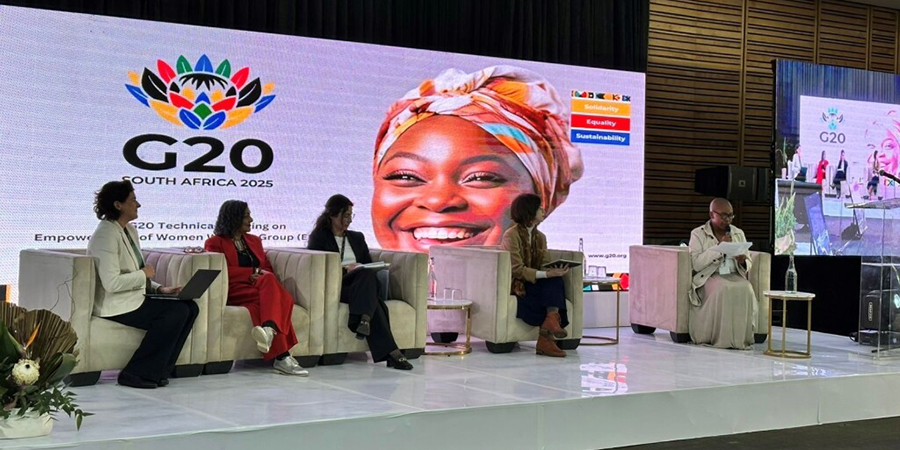
By participating in international events, Australia makes an important contribution to advancing the rights of women and girls globally.
In July 2025, Padma Raman, Executive Director for the Office for Women, attended the third G20 Empowerment of Women Working Group (the Working Group).
Held across 4 days, the Working Group focused on efforts to drive gender equality and women’s empowerment. This includes a focus on valuing the care economy and ending gender-based violence and femicide. Their discussions will inform the upcoming G20 Empowerment of Women Ministerial Meeting in October 2025, and the G20 Johannesburg Leaders’ Summit in November 2025.
Care economy
Discussions on the care economy recognised:
- a global care crisis is being driven by rising population age, a growing Official Development Assistance shortfall and increasing social inequalities
- data collection on the economic impacts of care are in need of improvement
- national care strategies will be more successful where they consider intersections between employment, care, labour, social protection, education and parental leave.
Ms Raman shared Australia’s experiences, appearing on the panel ‘Cross-country experiences of implementing gender responsive budgeting and national care policies’. She discussed Australia’s landmark National Carer Strategy 2024–2034, and noted the impact of Australia’s efforts to strengthen support services for carers, increase pay for formal care work and enhance data collection and analysis.
Gender-based violence
Conversations on gender-based violence and femicide considered:
- the need for sustainable financing for interventions, including prevention programs and strategies to challenge harmful gender stereotypes
- the risks and opportunities presented by technology, including artificial intelligence
- the reach and impact of gender-based violence, which has been amplified by digital technologies.
Appearing on the panel ‘Addressing gender-based violence and femicide’, Ms Raman emphasised the need for sophisticated, targeted social interventions to overcome push-back to gender equality and the human rights of women and girls. She spoke about Australia's National Plan to End Violence against Women and Children 2022–2032, as a national framework to guide actions to help break the cycle of violence and support victim-survivors. She also highlighted the role of Australia's eSafety Commission in addressing technology-facilitated abuse, and Australia's world-first social media age restrictions on children under 16 years.
Several international delegates expressed strong interest in Australia’s social media policies. Delegates also observed the inhibiting effect that technology-facilitated abuse can have on women’s participation in leadership roles.
